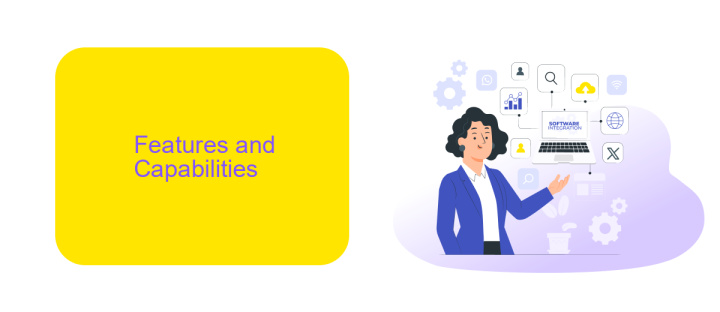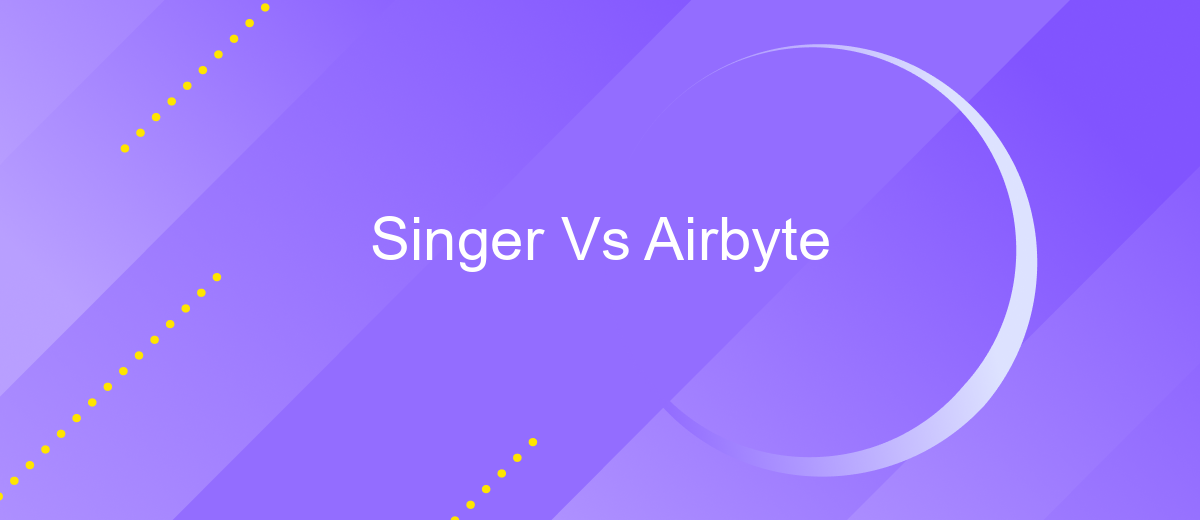Singer Vs Airbyte
When it comes to data integration and ETL (Extract, Transform, Load) processes, choosing the right tool is crucial for efficiency and accuracy. Two popular open-source options are Singer and Airbyte. Both platforms offer unique features and capabilities, but which one is the best fit for your needs? In this article, we’ll compare Singer and Airbyte to help you make an informed decision.
Introduction
In today's data-driven world, seamless data integration is crucial for businesses aiming to leverage their data effectively. Two popular tools in this space are Singer and Airbyte, each offering unique features and advantages. Understanding the differences between these tools can help organizations make informed decisions on which solution best fits their needs.
- Singer: An open-source ETL framework that uses JSON-based "tap" and "target" scripts to extract and load data.
- Airbyte: A modern, open-source data integration platform that offers pre-built connectors and a user-friendly interface for managing data pipelines.
- ApiX-Drive: A versatile service that simplifies the process of connecting various applications and automating workflows without the need for coding skills.
Both Singer and Airbyte have their own strengths, with Singer being highly customizable and Airbyte providing ease of use and extensive connector support. Additionally, services like ApiX-Drive can complement these tools by offering further automation and integration capabilities, making it easier for businesses to streamline their data workflows and enhance productivity.
Features and Capabilities

Singer and Airbyte are popular data integration tools, each offering unique features and capabilities. Singer is an open-source ETL framework that allows users to extract and load data using "taps" and "targets." Its modular design makes it highly customizable, enabling users to build and share their own taps and targets. Additionally, Singer’s community-driven approach ensures a wide range of connectors, though it may require more technical expertise to set up and maintain.
Airbyte, on the other hand, provides a more user-friendly interface with a focus on ease of use and scalability. It supports a vast number of pre-built connectors and offers features like schema management and data normalization. For those looking to streamline their integration processes, services like ApiX-Drive can be invaluable. ApiX-Drive simplifies the connection between various platforms, reducing the need for manual coding and allowing for seamless data flow between applications. This makes it an excellent complement to both Singer and Airbyte, depending on the specific needs of the user.
Performance and Scalability

When evaluating the performance and scalability of Singer and Airbyte, it is essential to consider various factors that impact their efficiency and ability to handle growing data loads. Both tools have unique characteristics that cater to different needs and use cases.
- Data Volume Handling: Airbyte is designed to handle large volumes of data efficiently, thanks to its robust architecture and support for parallel data processing. Singer, while flexible, may require additional configuration to achieve similar performance.
- Scalability: Airbyte's modular design allows for easy scaling as data requirements grow. It supports distributed processing, making it suitable for enterprise-level applications. Singer's scalability depends on the specific implementation and may require more manual intervention.
- Integration Management: Airbyte offers a user-friendly interface and built-in connectors for seamless integration management. For those seeking additional automation in integration setups, services like ApiX-Drive can complement both tools by providing streamlined workflows and reducing manual effort.
In conclusion, while both Singer and Airbyte offer valuable features for data integration, Airbyte stands out in terms of performance and scalability, particularly for large-scale applications. Leveraging supplementary services like ApiX-Drive can further enhance the efficiency and ease of managing integrations, making it a versatile choice for various business needs.
Security and Reliability

When comparing Singer and Airbyte in terms of security and reliability, both platforms offer robust features to ensure data integrity and protection. Singer, with its open-source nature, allows for extensive customization, but it also requires users to implement their own security measures. This means that the responsibility for maintaining the security of data pipelines falls heavily on the user.
Airbyte, on the other hand, provides a more comprehensive security framework out of the box. With built-in features such as encryption at rest and in transit, role-based access control, and detailed logging, Airbyte ensures that data is protected throughout the entire integration process. Additionally, Airbyte's managed service option offers automatic updates and patches, further enhancing reliability.
- Encryption at rest and in transit
- Role-based access control
- Detailed logging and monitoring
- Automatic updates and patches
For those looking to streamline their integration setup while maintaining high security standards, services like ApiX-Drive can be invaluable. ApiX-Drive simplifies the process of connecting various applications and ensures that data transfers are secure and reliable. By leveraging such tools, organizations can focus on their core operations while trusting that their data integration needs are met with the highest security standards.
Pricing and Support
When it comes to pricing, both Singer and Airbyte offer different models to cater to various user needs. Singer is an open-source platform, meaning it is free to use, but may require additional resources for setup and maintenance. On the other hand, Airbyte offers a community edition that is also open-source and free, but they provide a cloud-hosted version with additional features and support at a cost. This flexibility allows users to choose a plan that best fits their budget and requirements.
Support is another crucial aspect to consider. Singer relies heavily on community support, with forums and documentation available for troubleshooting. In contrast, Airbyte offers more structured support options, including a dedicated support team for their paid plans. For users seeking seamless integration and automation without extensive manual configuration, services like ApiX-Drive can be invaluable. ApiX-Drive simplifies the process of setting up integrations between various platforms, providing an easy-to-use interface and robust support to ensure everything runs smoothly.
FAQ
What are the main differences between Singer and Airbyte?
Which tool is better for a small startup with limited resources?
Can I use both Singer and Airbyte together?
How do these tools handle data transformation?
What are the options for automating and managing integrations with these tools?
Routine tasks take a lot of time from employees? Do they burn out, do not have enough working day for the main duties and important things? Do you understand that the only way out of this situation in modern realities is automation? Try Apix-Drive for free and make sure that the online connector in 5 minutes of setting up integration will remove a significant part of the routine from your life and free up time for you and your employees.

